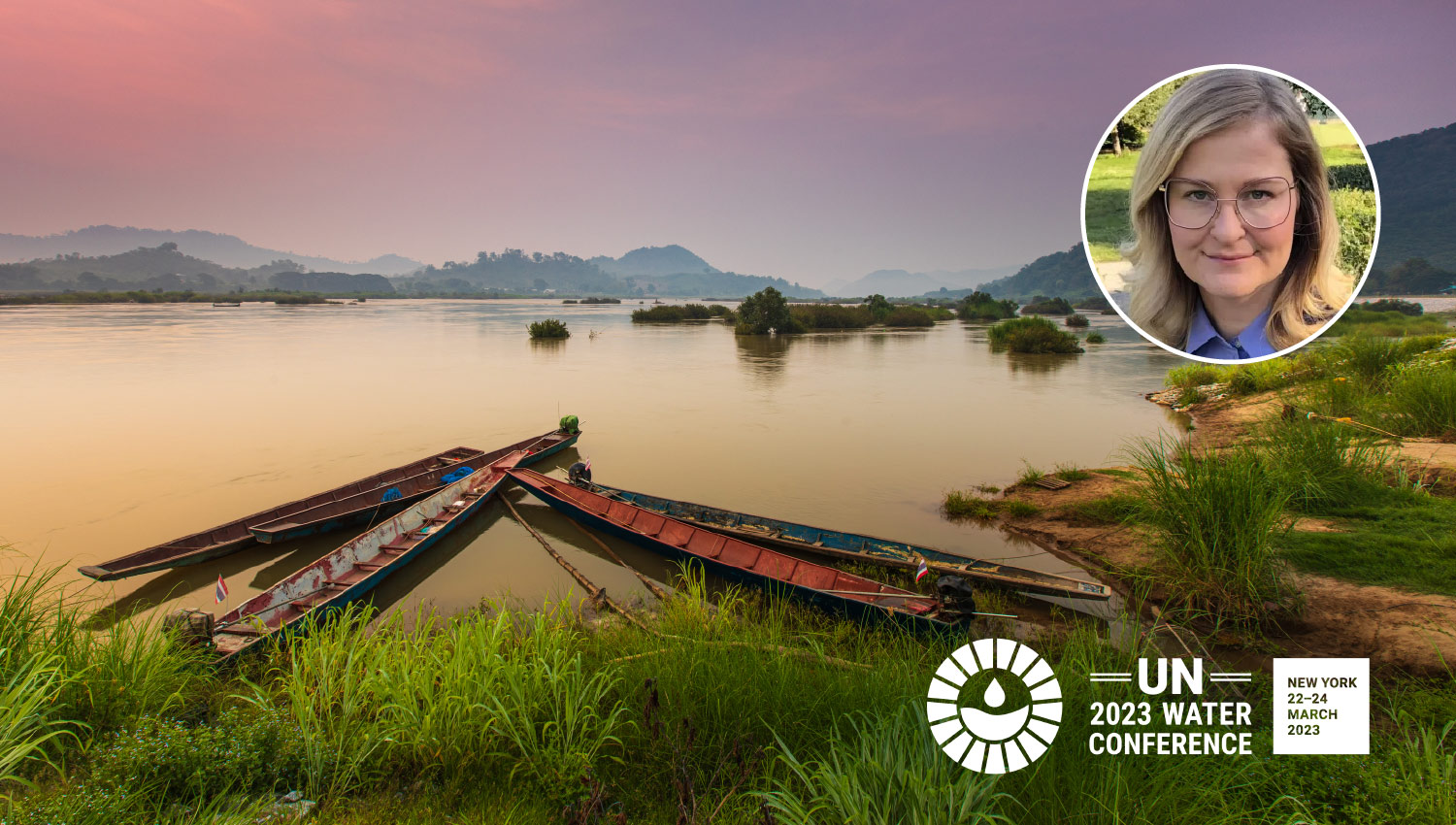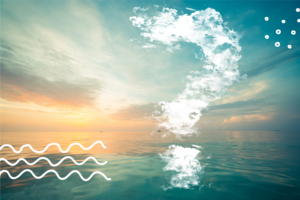Building a coalition for transboundary water cooperation
“I hope that the conference will lead to coordinated action to address the environment, climate and water crises. Currently, around the world, 4 billion people – more than half the world’s population, experience severe water scarcity for at least one month of the year. For 733 million people, water stress is at a critical level. We cannot afford not to take action to address this situation.”
You have organized a very special side event to raise awareness of the role of water for peace and security, can you tell us a little about it?
Together with Government of Sweden and our partners in the Stockholm Hub on Environment, Climate and Security, we organizede a dialogue on the importance of- as well as the challenges and barriers to making commitments to transboundary water cooperation. The event Commitments to Accelerate Cooperation on Water, Environment, Climate, and Peace can be watched here.
There are many valuable insights from government representatives from Iraq, Turkey, Somalia and Sweden, as well as leading experts and civil society members. Together they explored examples of how water cooperation can respond to climate-related security risks with a focus on effective innovative approaches.
Hopefully these reflections can inspire more countries to pledge commitments related to transboundary cooperation as part of the Water Action Agenda and until the end of the Water Action Decade.
SIWI and our partners in the Stockholm Hub on Environment, Climate and Security, are working actively to support this and organized a high-level panel on the topic at last year’s World Water Week. It also focused on how coordinated action on climate and peace can create innovative ways to strengthen resilience and security. After the UN 2023 Water Conference, we will continue to build on this work, for example at this year’s High Level Panel at the World Water Week.
How else are you engaging at the UN 2023 Conference?
Amongst other things I am supporting the Women in Water Management Network in Central Asia and Afghanistan to engage in the UN 2023 Water Conference. It is key that international processes are inclusive and equal and that traditionally marginalized groups such as women and youth can engage in events such as the UN 2023 Water Conference, the Dushanbe Water Conference and World Water Week.
How will SIWI continue to strengthen transboundary collaboration?
We are creating opportunities for experience and knowledge exchange for water diplomacy actors as well as researching water cooperation, diplomacy and governance. We have also for a long time promoted inclusive processes that support the participation of women, youth an indigenous peoples in decision making roles in water diplomacy processes. SIWI is host to the International Centre for Water Cooperation, together with Uppsala University’s Department of Peace and Conflict Research. Additionally, SIWI, has, together with partners, founded the Women in Water Diplomacy Network. The Network has made a commitment to the Water Action Agenda and launched a global network strategy at the World Water Week in 2022.
SIWI events on transboundary cooperation during the UN 2023 Water Conference
22 March | 3:30 – 4:45 (EDT) Elevating Critical Voices in Water Diplomacy: Featuring the Women in Water Diplomacy Network. Conference Room A. Watch an interview around the event here.
23 March | 8:00 – 9:15 am (EDT) Commitments to Accelerate Cooperation on Water, Environment, Climate, and Peace. Conference Room 7
23 March | 6:30 – 7:45 (EDT) Committing to advance transboundary water cooperation worldwide for sustainable development, climate action, stability and peace. UN Headquarter
24 March | 3:30 – 4:45 (EDT) Overcoming challenges and realizing the potential of groundwater in Sub-Saharan Africa through cooperate approaches. Room C
Editorial note
- Stockholm Hub on Environment, Climate and Security – The Stockholm Hub on Environment, Climate and Security combines the strengths of four leading research institutes: Stockholm Environment Institute (SEI), Stockholm International Water Institute (SIWI), Stockholm International Peace Research Institute (SIPRI) and Stockholm Resilience Centre at Stockholm University (SRC).
- Stockholm Hub on Environment, Climate and Security – The Stockholm Hub on Environment, Climate and Security combines the strengths of four leading research institutes: Stockholm Environment Institute (SEI), Stockholm International Water Institute (SIWI), Stockholm International Peace Research Institute (SIPRI) and Stockholm Resilience Centre at Stockholm University (SRC).









